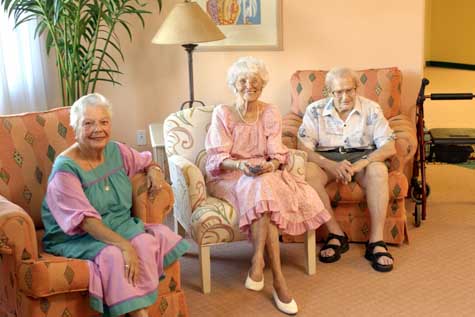The financial services industry often refers to retirement planning for the future with aging clients in terms of “housing choices”. This reflects some degree of misperception about what happens as we age. For healthy people of retirement age, there is little interest in planning for the need for care and planning for loss of independence. People usually resist talking about it. We don’t choose to lose our independence. It happens. It is up to the advisor to raise it if you want to advise for longevity. The subject is emotional and can be difficult.
Where we need to get help when we can’t be independent any longer is really a choice about care, rather than housing. This is not house shopping. Does a client want to pay for care in her own home when that time comes? Most would say yes, they want to remain at home. They then must calculate what a home care worker costs and whether that is the best way to receive the help they are likely to need one day with their activities. Can the resources be available to enable that choice of where care will be given?
If an elderly client is living alone and can’t manage at home anymore without assistance, there are indeed choices, often driven by the degree of care needed and the cost of getting it. Elders may not be interested any longer in maintaining a house, cooking, shopping, and other necessary chores. For them, assisted living may be desirable because their daily lives will be different and free from the burden of the household that has become unmanageable. The choice to go to assisted living is usually not one a client is going to make because of wanting to downsize into an apartment for its own sake. Rather that is the price of going to the place where assistance is on hand. Again it is to receive care, not because they love the idea of not having their home any longer. For many elders, downsizing from a house to an assisted living apartment is a difficult adjustment, required because of physical or mental changes of aging. From that perspective it is a choice forced upon them.
A factor every advisor should know is that the likelihood of living alone increases with age. Almost half of women age 75+ lived alone in 2010, according to the Institute on Aging. The “choice” of a different living arrangement is brought on by safety and care concerns, often raised by their adult children.
It will be good for every advisor who wants to help clients plan for longevity to consider that their role is to introduce the issue of possibly needing care in the future, as about 70% of us will one day. If your client has you in her life, she already has housing. Planning for “housing” is a misnomer. Focus on places and choices where care can be delivered. Having no care plan can be disastrous, as sudden health crises can force decisions without considering the cost of care in advance.
In helping to educate your client about where he or she can receive care, the costs of all the offerings available in most areas are spelled out in detail in our book, Hidden Truths About Retirement & Long Term Care. You can develop quick expertise on the subject there. Skilled advice about longevity for your aging clients requires knowing your numbers, what care options are available where they live and how much they can expect to spend for that care. Smart advisors gather the data before a crisis happens and urge clients to look at it with them.
By Carolyn L. Rosenblatt, RN, Elder law attorney, AgingInvestor.com

